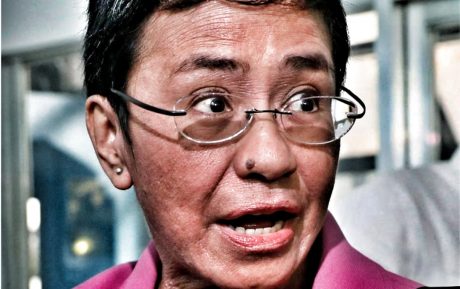
It’s been several weeks since the Philippines’ Securities and Exchange Commission (SEC) issued a shutter order to “social news network” Rappler for violation of constitutional provisions banning foreign control of media businesses in the country. Over that period, Rappler CEO Maria Ressa has campaigned vigorously to spin this compliance violation into one around an imagined issue of “press freedom”.
In her latest “report” to her loyal readers, Ressa asserts how the “SEC order [was] meant to silence us [and] muzzle free expression” while linking to the most recent of her beleaguered organisation’s stunts — filing an appeal with the Court of Appeals (CA) to continue to deny that Rappler had violated any laws…
The 68-page petition argues that contrary to the decision of the SEC, the agreement between Rappler and foreign investor Omidyar Network (ON) does not constitute control.The petition also bares similar agreements between network giants ABS-CBN and GMA News with its foreign investors, which the SEC has not faulted, and which it did not investigate.
In his Inquirer column yesterday, Oscar Franklin Tan pointed out the dishonesty in the public statements Rappler had been publishing about the case. Notable among these is the idea that the SEC move is the start of some sort of “assault on press freedom” being mounted by the government of Philippine President Rodrigo Duterte. According to Tan, this not consistent with the SEC position which is very clear on the specific items in regulation surrounding the issuance of the types of funding agreements in question. The SEC report points out that clauses that extend “veto rights” are provided in Rappler‘s agreement with its foreign funder Omidyar Network. These rights are not found in similar instruments issued by ABS-CBN and GMA to their respective investors.
Indeed, the SEC order does not, in any way, present a future threat to any other news media network. This is all about Rappler‘s violation of the Constitution. And the threat to “press freedom” is all in the minds of Ressa and her Rapplerettes.
If there is any actual threat to “free speech”, it can be found in how Rappler goes about reporting about its own predicament. Rather than highlight the true facts surrounding its case which all point not just to Ressa’s negligence as CEO but to a seemingly deliberate effort mounted by her company to circumvent corporate regulation, Rappler‘s reporters put up mere strawmen.
Ressa and her henchwomen are actually the ones abusing their freedom by baldly misleading the public. Tan puts it quite succinctly: “Free speech cannot justify Rappler’s misleading coverage of Rappler”. Ressa should heed the words of the venerable Oprah Winfrey: Time is up. So is the jig.
Rappler is all but exposed as a non-viable business venture and, worse, a channel out of which dishonest journalism is served to an unwitting Filipino public.

No comments:
Post a Comment